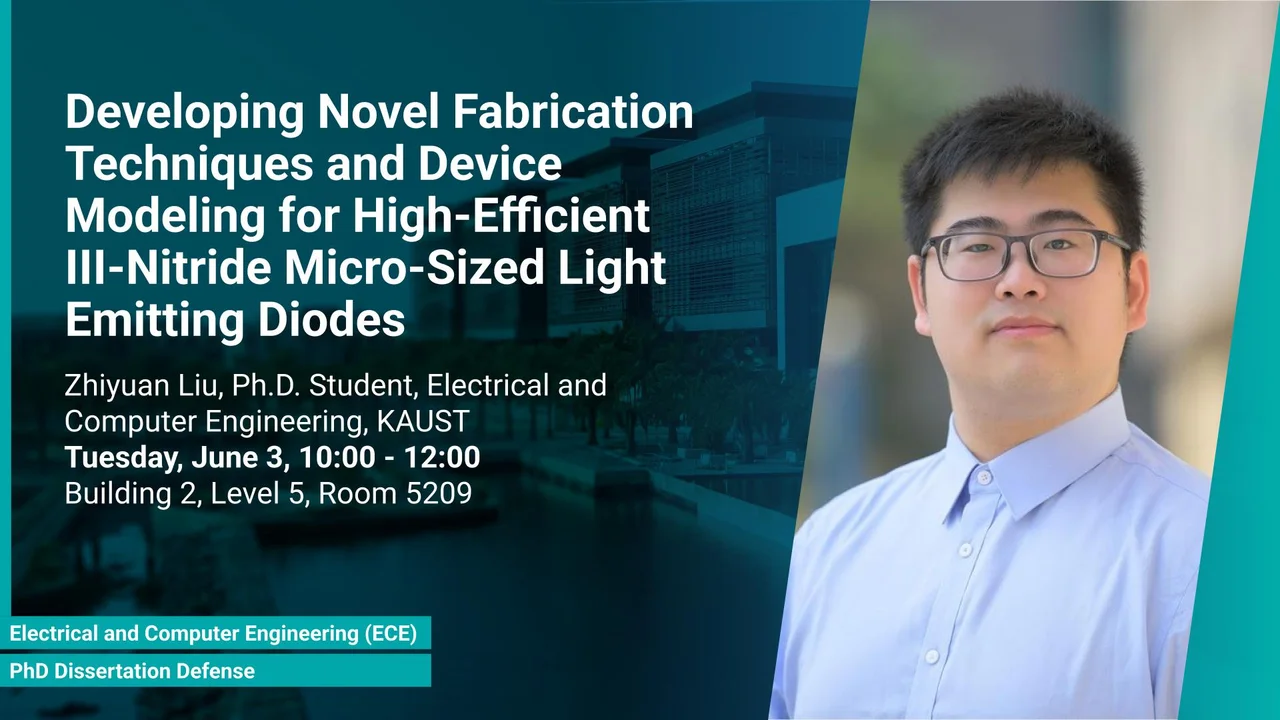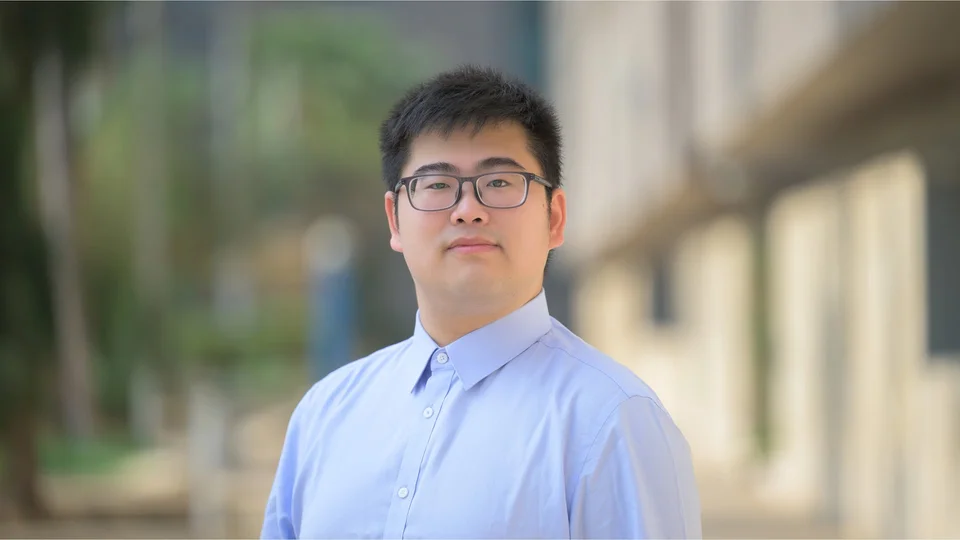
Developing Novel Fabrication Techniques and Device Modeling for High-Efficient III-Nitride Micro-Sized Light Emitting Diodes
This thesis addresses current challenges in InGaN and AlGaN micro-LEDs, including efficiency degradation due to sidewall damage and the high complexity of the micro-LED fabrication process.
Overview
III-nitride micro-sized light-emitting diodes (micro-LEDs) have advanced rapidly in recent years, with visible micro-LEDs based on InGaN materials and ultraviolet (UV) micro-LEDs based on AlGaN materials. In particular, InGaN micro-LEDs are considered strong candidates for next-generation display technology due to their high contrast, intense brightness, wide color gamut, and long lifespan. The reduction in device size has enabled higher resolution in display applications. Furthermore, compared to larger-sized UV LEDs, smaller-sized UV LEDs can significantly improve light extraction efficiency, current spreading, heat dissipation, communication modulation bandwidth, and data transmission rates. UV micro-LEDs are considered to have tremendous application potential in various fields, including sterilization, bio-sensing, wireless communication, color conversion, and maskless lithography.
This thesis seeks to address current challenges in InGaN and AlGaN micro-LEDs, including efficiency degradation due to sidewall damage and the high complexity of the micro-LED fabrication process. Our fabrication process has achieved micro-LED sizes as small as 2.3 microns. Research approaches span device modeling and fabrication, such as employing atomic layer etching techniques to eliminate the sidewall damage, achieving etching-free and low-complexity micro-LED fabrication through a novel selective thermal oxidation method, and optimizing carrier injection capability by polarization and band engineering. Research results indicate that these innovative technologies lead to significant performance enhancements for III-nitride micro-LEDs such as lower leakage current and higher efficiency. We believe these studies provide fresh insights into advanced techniques to fabricate high-performance micro-LEDs, paving the way for their future development and commercialization.
Presenters
Brief Biography
Zhiyuan Liu earned his Ph.D. in Electrical and Computer Engineering from King Abdullah University of Science and Technology (KAUST) in 2025. His doctoral research was conducted in the KAUST Advanced Semiconductor Laboratory under the supervision of Professor Xiaohang Li.
Liu’s work focuses on the design, fabrication and performance optimization of III-nitride optoelectronic devices, including micro-LEDs, deep ultraviolet LEDs and ultraviolet photodetectors. His research emphasizes device structural design, physical modeling, micro- and nanofabrication, and surface and interface engineering to improve efficiency, reliability and scalability.
During his time at KAUST, Liu developed an etching-free fabrication approach for ultra-small micro-LEDs based on selective thermal oxidation. This work was recognized with the International Solid State Lighting Alliance’s 2025 Global SSL Award of Innovations Top 100, highlighting its contribution to improving device efficiency, stability and manufacturability.
Liu has authored more than 30 SCI-indexed journal publications, including 10 first-author papers in leading journals such as Light: Science & Applications, Optics Letters and Journal of Materials Chemistry C.
He is currently a professor at the Suzhou Institute of Nano-Tech and Nano-Bionics (SINANO), Chinese Academy of Sciences, where he continues to advance research on micro-LED technologies and III-nitride optoelectronic devices.

